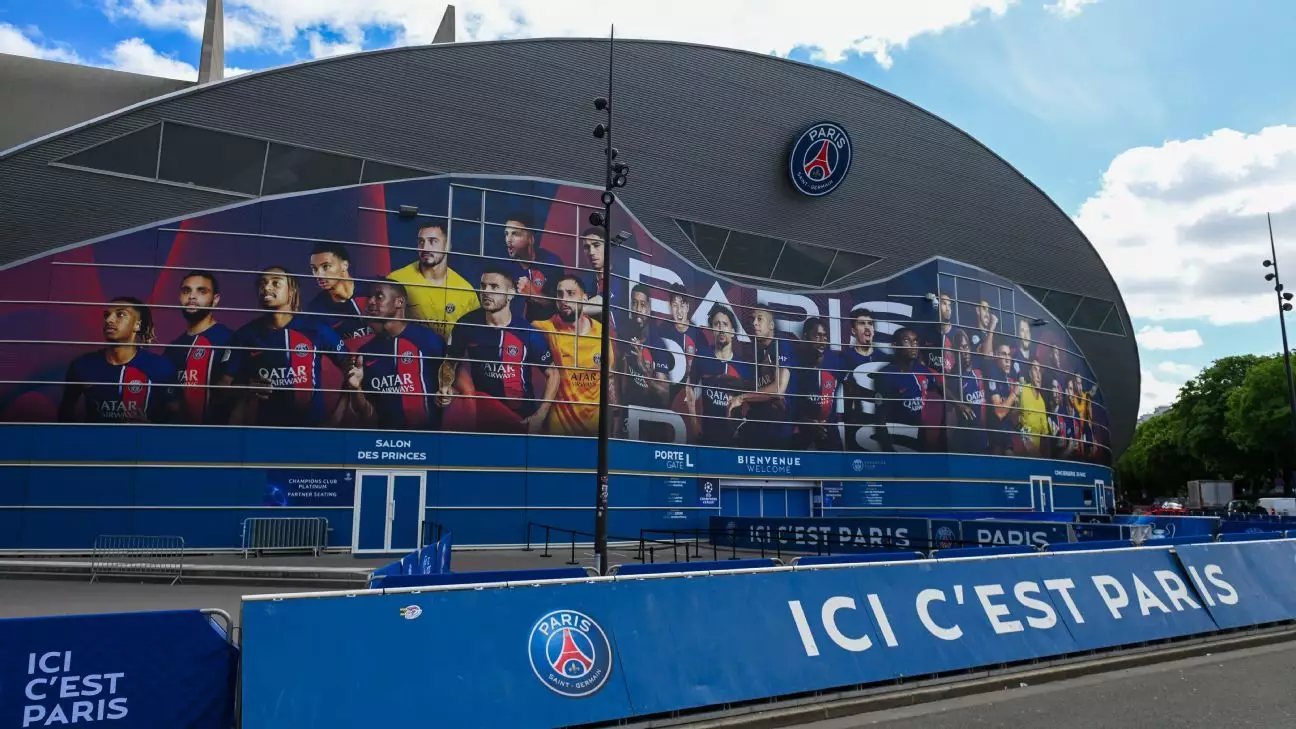In recent months, the investment landscape of Qatar’s sovereign entities in France has shifted dramatically. Echoing a broader trend of cautious financial engagement, the Qatar Investment Authority (QIA) and Qatar Sports Investments (QSI), the majority owners of the prominent Paris Saint-Germain (PSG) football club, seem to be recalibrating their focus. This article explores the implications of this cooling interest and the complexities involved.
Reports indicate that Qatar’s sovereign wealth fund, QIA, which boasts an impressive portfolio estimated at €500 billion, has begun a gradual withdrawal from France. Rather than being a knee-jerk response to unforeseen controversies, like the ongoing investigation surrounding PSG president Nasser Al-Khelaifi, this trend stems from a carefully considered strategy that has been evolving over the past year. Although Al-Khelaifi’s legal challenges have drawn public scrutiny, insiders assert that these issues are not connected to the club itself but rather pertain to his connections with a French businessman.
The preliminary charges against Al-Khelaifi include serious allegations of electoral malpractice and abuse of power. While he staunchly denies the allegations, the ramifications could affect how Qatari investments in France are perceived. Still, the nearness of these events to QSI’s investment behavior may signal deeper underlying motivations rather than simply a reactionary stance.
Historically, QIA and its subsidiaries viewed France as a strategic site for investment, acquiring various assets including hotels, properties, and other commercial interests. However, a growing frustration with perceived biases from French media, law enforcement, and political figures has surfaced among Qatari officials. This disillusionment has prompted a reevaluation of their commitment to the French market, which had previously been among their highest priorities.
In their attempts to balance public perception and actual investment strategies, QIA has opted to divest from parts of its French holdings. This trend is particularly noticeable within high-profile investments, including PSG, which has been a hallmark of QSI’s ambition since its acquisition in 2011. While PSG has secured numerous domestic titles, including 10 Ligue 1 championships and other accolades in the last decade, its failure to capture the coveted Champions League title reflects persistent frustration among Qatari investors.
In a bid to diversify its portfolio, QSI is actively courting external investors, as demonstrated by the recent minority equity stake acquisition by American investment fund Arctos in partnership with NBA star Kevin Durant. This partnership signifies a strategic pivot away from solely relying on Qatari capital and towards a more global approach in fostering growth and sustainability at PSG.
Additionally, QSI has begun to explore ventures beyond French borders, including investment in Portuguese club SC Braga. This shift signifies an important transition for Qatar’s investment approach, as they seek to minimize over-dependence on the French market while expanding into potentially more lucrative or favorable business climates elsewhere.
Moreover, the media rights arm of the Qatari enterprise, beIN Media Group, has also shown signs of retraction, seeking negotiations with Saudi Arabia and scaling back expenditures in the French media landscape. This trend not only illustrates a possible decline in French media perceptions of Qatari entities but also aligns with the broader strategy of recalibrating investments on multiple fronts.
As Qatar reassesses its position in France, the evolving dynamics offer both challenges and opportunities. The ongoing investigation into Al-Khelaifi underscores the complexity of navigating international investments laden with legal and public relations hurdles. However, by diversifying their investments and fostering strategic partnerships elsewhere, Qatari entities may reinvent their approach to global investment.
While the future of PSG and Qatari investments in France remains uncertain, these developments indicate a cautious yet calculated shift in strategy. As the landscape evolves, how both Qatar and French authorities navigate these waters will likely have significant implications for the relationships that lie ahead. The trajectory of Qatari investments—once synonymous with boldness—now appears to be marked by strategic pragmatism as they look to redefine their role on the global stage.


Napsat komentář